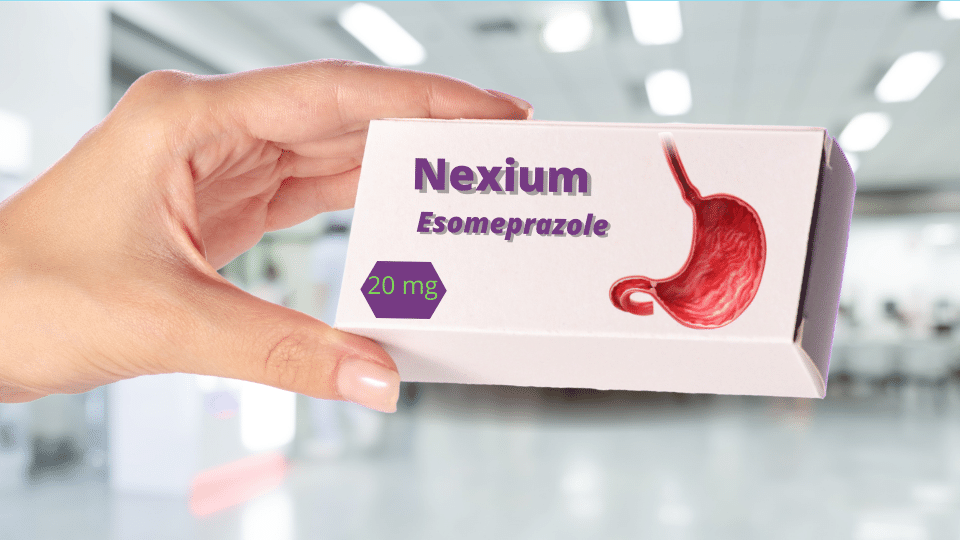Esomeprazole (Nexium) belongs to a group of medicines which are known as proton pump inhibitors, it acts by reducing the amount of acid the stomach produces, hence is used for diseases that are caused (or worsened) by stomach acid such as peptic ulcer, duodenal ulcers and GERD.
Nexium is the brand name for Esomeprazole, and it is available as: capsules, oral suspension, granules and injection.
Common side effects of Esomeprazole include:
- Headache
- Nausea
- Diarrhea
- Abdominal pain
- Flatulence
- Dizziness
- Muscle weakness
- Vomiting
- Hepatotoxicity (toxic liver)
- Rash
- Bronchospasm
- Rhabdomyolysis
- Toxic epidermal necrolysis
- Bone fracture
Sometimes, the side effects of esomeprazole could be serious, so if you experience any severe side effects, you should seek medical attention immediately.
- Sweating
- Blurred vision
- Confusion
- Flushing
- Headache
- Nausea
- Tachycardia
- Sleepiness (drowsiness)
1.Kizior, R.J. and Hodgson, B.B. (2018). Saunders nursing drug handbook 2019. Philadelphia: Saunders.
2.Williams and Wolters Kluwer Health (2012). Nursing 2012 drug handbook. Philadelphia, Pa.: Wolters Kluwer Health/Lippincott Williams & Wilkins.
3.Joint formulary committee, BNF 80 (The British National Formulary), 80th Revised edition, Pharmaceutical Press, London, United Kingdom, [2020]
Esomeprazole (Nexium) belongs to a group of medicine known as proton pump inhibitors; it acts by reducing the amount of acid the stomach produces.

The urethra is a muscular canal that extends from the neck of the bladder to the exterior of body. Read more about the anatomy of urethra in this article.

Dosage guide of Lisinopril: Click to read about the dose for your specific condition and age group.

Learn about medical uses, safety profile, mechanisms and interactions of statins.

Comprehensive guide on Ozempic (semaglutide), including its uses, dosage, side effects, warnings, and interactions.
.png)